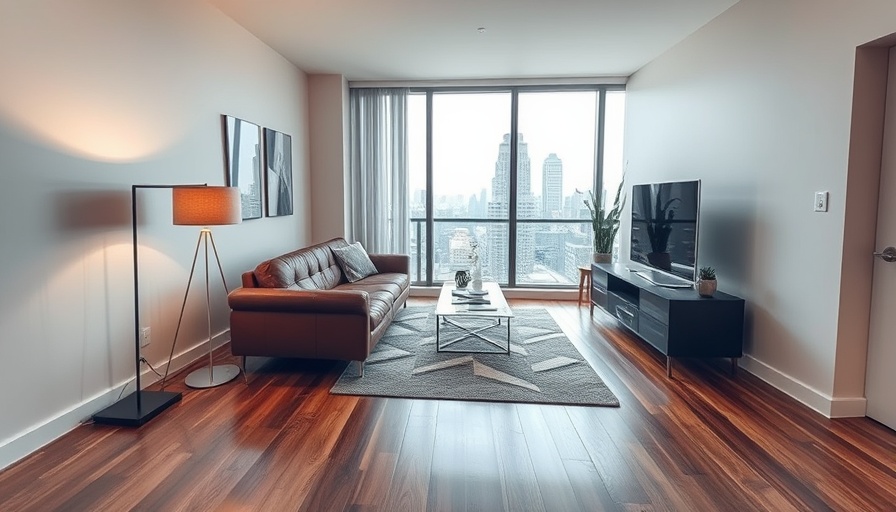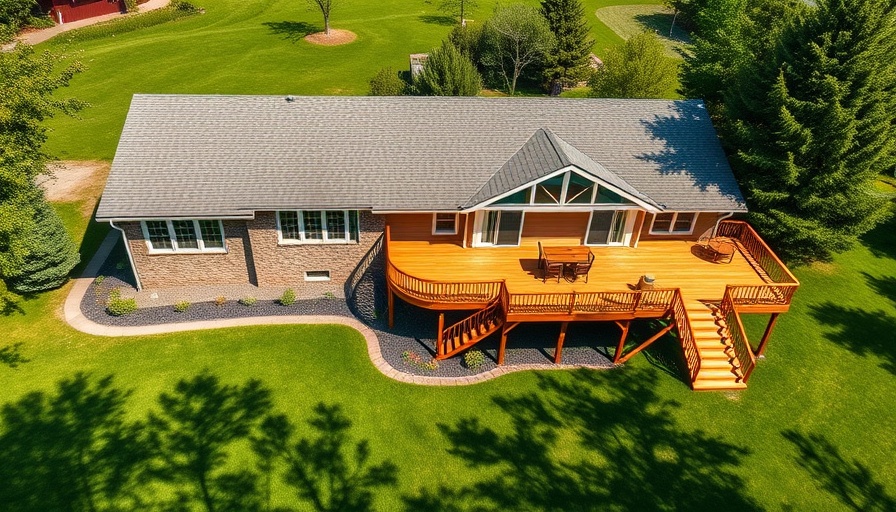
Navigating Brooklyn's Basement Rental License Maze
Brooklyn's residential landscape is evolving, making basement rentals an appealing option for homeowners looking to maximize their livable space and generate additional income. However, to avoid costly fines and legal complications, understanding the basement rental license process is imperative.
Historical Context of Basement Rentals in Brooklyn
Understanding the historical evolution of basement rentals in Brooklyn is instrumental in grasping the current legal landscape. In years past, many basement units were illegally occupied, leading to safety concerns and significant legal changes. As of 2025, the New York City Department of Buildings (DOB) has implemented stricter zoning regulations to ensure that all rented spaces meet safety standards, which has paved the way for legitimate rental opportunities.
The Importance of Permits: What Homeowners Must Know
Obtaining a permit is non-negotiable for legally renting a basement space. The critical steps involve an application process that can appear daunting but is streamlined through the city's online portal. Homeowners must be prepared to submit architectural plans that demonstrate compliance with local zoning regulations, which are crucial for safety and habitability assessments.
Common Misconceptions About Basement Rental Compliance
Even seasoned property owners harbor misunderstandings regarding the legality of basement rentals. A prevalent myth is that if a unit was previously rented without issue, it can continue to be occupied without a formal license. This notion is dangerously misleading; the city has cracked down on illegal rentals, increasing the scrutiny of non-compliant properties.
Essential Steps for Securing Your Basement Rental License
Here are the fundamental steps homeowners in Brooklyn should take to secure their basement rental licenses:
- Research Local Zoning Laws: Initiate your process by understanding your neighborhood's specific zoning designations and what this means for your property.
- Designing for Safety: Ensure that your basement meets safety standards, including adequate egress, ventilation, and structural integrity.
- Submit Required Documentation: Gather and submit necessary documents such as architectural plans, proof of ownership, and tax records through the DOB's platform.
- Pass Inspections: After submitting your application, prepare for inspections to verify adherence to safety standards.
Future Insights: Trends in Basement Utilization
As demand for rental properties continues to surge, the trend of legally converting basement spaces will likely grow. Homeowners that comply with zoning requirements stand to benefit from increased property values and rental income, making the initial investment of time and effort worthwhile.
Decisions You Can Make with This Knowledge
Arming yourself with knowledge about the basement rental licensing process equips you to make strategic decisions. These decisions may involve whether to initiate renovations, how to structure rental agreements, and understanding the potential return on investment if you choose to rent legally.
Conclusion: Ensuring Compliance for Protection and Profit
In Brooklyn's booming rental market, it is crucial to navigate the basement rental license process with diligence and care. The potential rewards of renting out a legal basement apartment are significant, but the stakes involve adhering to city laws to avoid penalties. By understanding both the compliance landscape and the benefits of legal rentals, homeowners can transform their underutilized spaces into valuable assets.
As you embark on this journey, engage with local resources and consider consulting with professionals specializing in real estate law and zoning regulations to guide you on your path toward compliance. Start your application today to create a safe and profitable rental opportunity from your basement.
 Add Row
Add Row  Add
Add 




 Add Row
Add Row  Add
Add 

Write A Comment